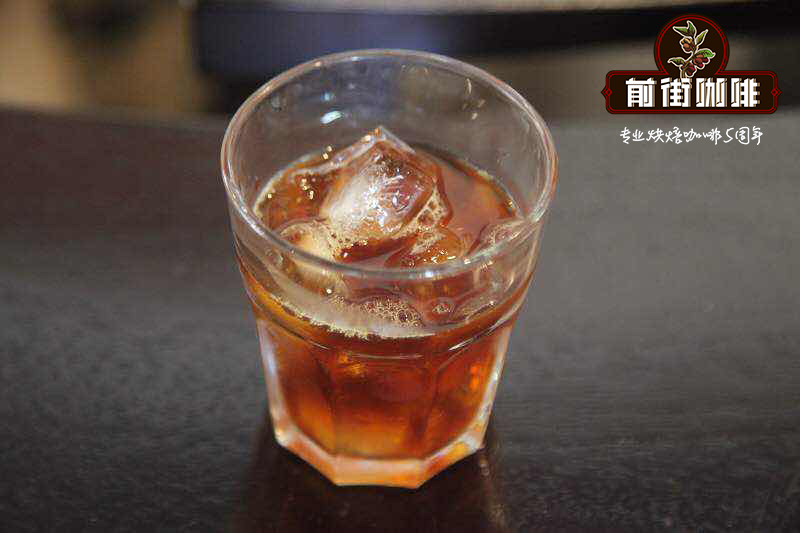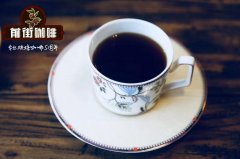Taiwan Coffee History how about Taiwan Coffee? is there any good coffee in Taiwan?

Professional coffee knowledge exchange more coffee bean information please follow the coffee workshop (Wechat official account cafe_style)
Since Starbucks entered Taiwan in 1998, Taiwan's coffee culture has become popular. The first one Coffee opened in Taichung in 2002, which started the war of cheap coffee in Taiwan. After convenience stores such as 85 °C and 7-11 and the whole family joined the war, the number of people drinking coffee increased exponentially in Taiwan. With the development, Taiwan's coffee culture also keeps pace with the times. In recent years, from the rapid expansion of more professional coffee shop chains such as cama and Louisa, we can see that Taiwan's coffee ideology has obviously risen to another level. After the baptism of Italian-style coffee, hand-brewed coffee has become an alternative choice for Taiwanese. More and more people find that coffee has more than one taste, and coffee is as professional as red wine. Coffee brewed from different manors and brewing techniques have completely different flavors and colors. But did you find out? The products we often drink come from Africa, South America, Southeast Asia and other regions. Do you know that coffee in Taiwan was once known as the Rolls-Royce of coffee and was designated as the imperial coffee of the emperor during the Japanese occupation era?
In fact, people who have really drunk Taiwan coffee will be touched by the multi-level taste of Taiwan coffee. In addition to the rich oil and unique aroma of the coffee itself, it is very rich in intensity, purity and aroma, and it can be said to be the best coffee in the world.
Taiwan coffee is rising as a "black gold". The top roasted beans soar to NT $4000 or NT $5000 a pound, which is on a par with high-priced musk coffee. As long as it is crowned with "Taiwan coffee," the price will jump triple. In a coffee shop, a cup of Taiwanese coffee costs NT $200 to NT $300. "the most expensive roasted coffee is NT $4000 or NT $5000 a pound. High-priced musk coffee from abroad is priced at 6000 or 7000 yuan a pound in department stores, while it can be bought at 3000 or 4000 yuan in other channels.
Coffee in Taiwan is expensive not only because of low production and scarcity, but also because labor costs are too high. Taiwan earns at least US $20 a day, while third World producing countries often earn less than US $1. This is also the reason why Taiwan coffee is only willing to import rather than buy local potatoes under the consideration of the cost of large coffee manufacturers.
According to the data on the website of the Gukeng Township Public Office, at present, Taiwan's coffee producing areas include Nantou Huisun Forest Farm and Lugu, Yunlin Hebaoshan, Tainan Kuantou Mountain, Hualien Mizui Farm, Chiayi Alishan, and Pingtung Dawu Mountain, with an planting area of about 700 hectares and an annual output of about 100 metric tons, which is less than 1/10 of Taiwan's consumption, so most coffee beans still rely on imports. Since the price of imported coffee beans is much lower than that of local coffee beans, which are rarely produced, it is very difficult for operators not to mix local potatoes with imported beans, while those who insist on not mixing one bean are even more difficult and lonely, but even more precious. Because the characteristics of coffee beans are actually the same as those of tea, coffee beans produced from each mountain have different flavors. If they are mixed with other imported beans or coffee beans at lower elevations, they will lose their original flavor. So really good tea and good coffee should be very pure.
Because of the characteristics of production and marketing, although Taiwan's coffee is expensive for Rolls-Royce, its main markets are boutique coffee lovers and rural leisure boutique cafes.
Four major producing areas
Wuhe platform in Mizuho Township, Hualien, as early as the Japanese occupation period, the Japanese Kimura Company planted the first "Arabica" coffee in the eastern part of the country. It was once one of Taiwan's three major coffee producing areas. After the retrocession, due to rising labor costs, the Wuhe platform Coffee Garden gradually abolished and changed the planting of tea. Of the old coffee trees planted during the Japanese occupation, only the Golden Crane Tea Garden still has an area of about four hectares. Mainly for Arabica and Robusta two varieties, because of Robusta poor quality, poor taste, now almost no longer see. In recent years, there has been a coffee craze in Taiwan, and many farmers have changed to planting coffee. The area of Wuhe coffee has increased year by year, and now there are about 30 to 40 hectares of coffee plantations.
Alishan in Chiayi grows coffee mostly in the Zou tribes of Chashan, Xinmei, Leye, Dabang, Lijia and Laiji, covering an area of more than 30 hectares, and many coffee plantations also emphasize organic cultivation. The first person to plant coffee trees in Alishan was in Leye Village, where the owner of Zou Chuyuan began to plant coffee trees on a trial basis, which was quite successful. In the Zou tribe, thousands of meters above sea level, the Alishan Peasant Association helps tribesmen grow Arabica varieties of coffee. Because of the large temperature difference in the climate, the coffee beans have a better flavor. The output of Alishan alpine coffee is small. The Alishan Farmers Association helps farmers commercialize their products and bake them into high-quality coffee beans. There are also sharp-eyed businessmen who see the good throat of Alishan coffee, contract with local farmers and buy alpine coffee directly. For example, Jianhu Mountain World sells Alishan alpine coffee in the coffee museum, which has a good reputation. Because Alishan has Zou customs and excellent mountain and forest scenery, the local landscape coffee garden is also opened by one family, and more and more Zou tribesmen are investing in growing coffee.
Hebaoshan and Huashan in Yunlin Gukeng Township planted about 75 hectares of Arabica coffee trees directly from economic farms during the Japanese occupation era. at that time, the coffee here was of particularly good quality and was paid tribute to the Japanese royal family, and the value of honor was equal to that of Taiwan juniper trees. More than 10 years ago, Zhang Laien returned to his hometown of Hebao Mountain and replanted coffee trees and opened Baden Coffee in Hebao Mountain. He was the first person to give Gukeng Coffee a name, and it was also the first coffee shop to commercialize "Taiwan Coffee." Hebao Mountain and Huashan Mountain range from 300 to 600 meters above sea level. They belong to sandy soil and have good drainage. They are especially suitable for planting Arabica coffee trees. Ten years ago, Hebao Mountain planted only 2 hectares of coffee trees, but last year it soared to 100 hectares, mainly in Huashan, Guilin and Hebaoshan. Because Huashan and Guilin can overlook the Jiannan Plain, 50 or 60 scenic coffees have been opened on the hill. it has become the place with the most scenic coffee in Taiwan.
Nantou Huisun Forest Farm, an experimental forest farm at Imperial University in Hokkaido during the Japanese occupation, began to grow Arabica coffee in 1949. With 70 years of coffee cultivation and technology, coffee farm planting way is relatively extensive, no pesticide and no fertilization, appeal for organic and pure coffee. The main varieties of coffee grown are Arabica (Arabica). It is said that they were introduced from England during the Qing Dynasty and belong to relatively high-quality coffee varieties. Huisun Forest Farm is a sandy soil with good drainage, about 770 meters above sea level, and the average annual temperature is about 16 to 26 degrees Celsius, which is very suitable for the growth of Arabica coffee trees. The coffee in the forest farm is 100% organic, without pesticide or fertilization. let the coffee absorb nutrients from the natural soil, which also created the special flavor of Huisun Coffee. Huisun Coffee also won the silver medal of the World Taste of Agricultural products in the United States.
Important Notice :
前街咖啡 FrontStreet Coffee has moved to new addredd:
FrontStreet Coffee Address: 315,Donghua East Road,GuangZhou
Tel:020 38364473
- Prev

How to make a good cup of coffee in a mocha pot? How do I use the mocha pot?
Professional coffee knowledge exchange more coffee bean information please follow the coffee workshop (Wechat official account cafe_style) first of all, when buying coffee beans, ask the shop assistant to grind the coffee beans suitable for the mocha pot before extracting the good coffee. In order to make the coffee ready quickly, I will put hot water to make the coffee, which will be ready in 5 minutes. If you like strong coffee, you can
- Next

[hand flushing practice skills] I always hear that it is good to practice more. How to practice hand brewing coffee on earth?
Professional coffee knowledge exchange more coffee bean information Please follow the coffee workshop (Wechat official account cafe_style) believe that many beginners, worship a lot of teachers, watched a lot of teaching videos, listened to a lot of standard procedures, and finally always hear a sentence: go back to practice, make a good run. Of course, hand flushing is to practice water injection, and it is impossible not to practice in this life. however,
Related
- Beginners will see the "Coffee pull flower" guide!
- What is the difference between ice blog purified milk and ordinary milk coffee?
- Why is the Philippines the largest producer of crops in Liberia?
- For coffee extraction, should the fine powder be retained?
- How does extracted espresso fill pressed powder? How much strength does it take to press the powder?
- How to make jasmine cold extract coffee? Is the jasmine + latte good?
- Will this little toy really make the coffee taste better? How does Lily Drip affect coffee extraction?
- Will the action of slapping the filter cup also affect coffee extraction?
- What's the difference between powder-to-water ratio and powder-to-liquid ratio?
- What is the Ethiopian local species? What does it have to do with Heirloom native species?

